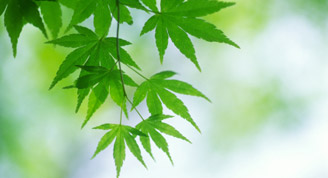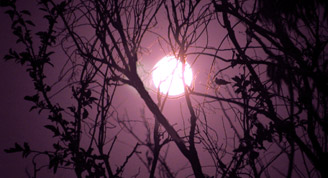His Divine Grace
BHAKTISIDDHANTA SARASVATI THAKURA PRABHUPADA
Place: A dharmasala under construction near the River Mahananda, in Malda
Time Thursday, 19th February, 1925
The following lecture was given by Srila Prabhupada in response to the four questions put forth by Sri Yukta Krsnasasi Gosvami, M.A.B.L. Mahasaya of Malda. The questions are:
- Do you accept that there are distinctions based on caste?
- What do you do when someone from a brahmana family approaches you for initiation?
- What do you do if someone from lower than a brahmana family approaches you for initiation?
- Do all disciples enjoy the same position after initiation?
- What criteria do you use to check a disciple's qualifications before initiation?
The need for daiva-varnasrama approved by sastra:
Varnasrama is useful for those who still have anarthas. But "unlawful" varnasrama is unacceptable. At present, we have an absence of "lawful" varnasrama. If a brahmana's, son is accepted as a brahmana and undergoes a sacred thread ceremony, and if he then engages in worldly activities rather than fixing his mind on worshiping the Supreme Lord, then what need was there for him to have had a sacred thread ceremony? As a daughter is addressed as "wife" even before her marriage, so at age eight a brahmana boy is considered a brahmana even before he is mature. That is also a proposed brahmanism, not the real thing. This is why the sastras describe brahminical qualifications again and again. If someone doesn't want to practice brahminical qualifications, no one can forcibly make him a brahmana.
Simplicity and truthfulness - defined as the desire to worship Lord Hari - are the only qualification a disciple needs to receive initiation:
An acarya should fix a boy's varna by seeing his propensity, or qualification. Simplicity and truthfulness are the only identifiers of a brahmana. Only simple-hearted and sincere persons can take shelter of devotional service without duplicity. Haridrumata Gautama ascertained Satyakama Javala's varna by seeing his simple, honest nature. Therefore brahminism based on qualities is the Vedic way. It is never proper for a real acarya to transgress the Vedic path by neglecting these qualities and simply following the ordinary path. By seeing simplicity and truthfulness before initiation - by seeing a disciple's strong desire to worship Lord Hari - a guru can understand if a person born in any family is eligible for spiritual brahminism.
In Kali-yuga, the pancaratrika-diksa system is approved by sastra:
Srila Gopala Bhatta Gosvami Prabhu quotes the following verses from Sri Visnuyamala in the fifth vilasa of Sri Hari-bhakti-vilasa:
krte sruti yukta margah syat tretayam smrtibhavitah
dvapare tu puranoktah kalava agama sambhavah
"In Satya-yuga rules and regulations were based on the Vedas; in Treta-yuga they were based on the smrti literature; in Dvapara-yuga they were based on the Puranas; and in Kali-yuga they are based on the agamas."
asuddhah sudra-kalpa hi brahmanah kali-sambhavah
tesam agama-margena suddhir na srota-vartmana
"The brahmanas born in the age of Kali are merely sudras. Their so-called Vedic path of karma is polluted and cannot purify them. They can only be purified by following the path of the agamas, or pancaratrika-viddhi."
The spiritual agamas, or tantras, are known as Pancaratra. Therefore the mention of the tantric procedure in Kali-yuga should be understood to refer to the pancaratriki system of initiation. Sri Narayana Himself spoke the Pancaratra. Exalted personalities like Sri Narada and Prahlada also speak the Pancaratra. Apart from worship of Lord Hari, no discussions of temporary material enjoyment are found in the spiritual tantras. In Mahabharata, Santi-parva, Moksa dharma, Chapter 348, verse 68, it is stated:
pancaratrasya krtsnasya vakta tu bhagavan svayam
yathagamam yatha nyayam nistha narayanah prabhuh
"The pancaratra system is given by Lord Narayana Himself. The purport of this system, as well as the other Vedic literature, is to fix one's mind at the feet of Lord Narayana."
evam ekam sankhya yogam vedaranyakam eva ca
parasparangani etani pancaratrantu kathyate
"The Sankhya-yoga system, the mystic yoga system, the teachings of the Upanisads, and the pancaratra system, are said to be one because their aim is one. Each of these is a limb of another."
Only a Vaisnava acarya is able to award the Vedic sacred thread:
According to the opinion of the spiritual pancaratra, an initiated Vaisnava is actually a Vedic brahmana. Since nonspiritual tantras are opposed to the Vedas, no one can attain the position of Vedic brahminism if he is initiated into the mantra of a demigod and not Lord Vishnu. The Pasupatadhikarana in the Brahma-sutra gives proof of that. Only a Vaisnava acarya is able to award the Vedic sacred thread to an initiated brahmana by giving him initiation into a Vishnu mantra.
The categories of initiation:
There are two categories of diksa, vaidiki and vedanuga. Vedanuga diksa is further divided into two classes, pauraniki and pancaratriki. Diksa given to a qualified twice-born person who has undergone the purificatory rituals is called vaidiki diksa. Diksa given to an unqualified person while considering it his right is called pauraniki diksa. Diksa given to an unqualified person with the intention to make him qualified in the future is called pancaratriki diksa. That is why Sri Hari-bhakti-vilasa says it's not possible to give vaidiki diksa in Kali-yuga. Hari-bhakti-vilasa mentions, in its description of the limbs of diksa, the need in pauraniki diksa to undergo the ten purificatory rituals. It did not elaborately describe the processes mentioned in other books, such as the Kramadipika, Sarada-tilakam, and Ramarcana-candrika. It supports the injunctions in favor of diksa given in agamas like the Tattva-sagara, and recommends:
yatha kancanatam yati kamsyam rasa-vidhanatah
tatha diksa-vidhanena dvijatvam jayate nrnam
"As bell metal, when mixed with mercury, is transformed to gold, a person, even though not golden pure, can be transformed into a brahmana, or dvija, simply by the initiation process."
The Vedic sacred thread ceremony is included in the diksa ceremony. At diksa, the unqualified human beings automatically become twice-born. When diksa is completed, no other rituals, such as the sacred thread ceremony, remain to be done. Everything is already done.
The "sudra diksa system" of the smartas, who worship the five gods, is actually namaparadha:
The sudra diksa system followed by five-god-worshiping smartas who are in favor only of seminal considerations cannot be called diksa. Rather, it is namaparadha, or diksa-vadha. According to the Vaisnava smartas, or the spiritualists, the cheating made possible by the cleverness of this diksa system is a concoction of the modern smartas.
The process of pancaratrika diksa:
Sri Narada Pancaratra, Bharadvaja-samhita (2.34) states:
svayam brahmani niksiptan jatan eva hi mantratah
vinitan-artha putradin samskrtya prati-bodhayet
"An acarya should purify his sons and disciples by engaging them in the service of the Absolute Truth after initiating them with proper mantras so that they will be purified and knowledgable."
When an acarya or spiritual master personally awards pancaratrika mantra, then by the influence of that mantra, a son or disciple becomes twice-born. At that time the acarya should purify the humble son or disciple with ten kinds of samskaras and teach him the actual meaning of the mantra by making him a brahmacari. This is the system of pancaratrika diksa.
As a result of receiving diksa, everyone attains the platform of a pure twice-born:
Sri Mahabharata (Anusasana-parva, chapter 143, verse 146) states:
sudro 'py agama sampanno dvijo bhavati samskrtah
"Persons born in lower, degraded castes can become qualified, well-versed brahmanas."
From this statement it is understood that the ten samskaras are already included in the pancaratriki diksa system. After receiving diksa, a person has no lack of brahminical qualities.
An initiated Vaisnava is not a non-brahmana:
Once, the friend of an envious person received a good education and was then given a high-ranking job in the royal service. When the envious person heard about it he said, "That enemy can never get such a high-ranking job." But when he heard that the king had awarded his enemy a judge's seat, he exclaimed, "If they have made him a judge, he must not be getting paid." Similarly, some say, "Even if he becomes a brahmana through diksa, he shouldn't be awarded a sacred thread," which is an external sign that he is a brahmana. People speak such words because they are envious.
Other people say that the acceptance of a brahmana thread by an initiated person is an obstacle to becoming lower than a blade of grass. In other words, only then will envious people get the chance to address the Vaisnavas with words like "sinful," "sudra," and so on. What to speak of this, despite being so-called brahmanas themselves, they become so unfortunate that they call the paramahamsa Vaisnavas, who are the spiritual masters of all the varnas and asramas, sudras. The atheists clear their path to hell by thinking Vaisnavas belong to a particular caste. Some say Srila Raghunatha dasa Gosvami Prabhu was unqualified to worship salagrama-sila or Thakura Haridasa was not fit to sit among brahmanas. The servants of the Vaisnavas always protect such living beings from their stubborn, hellish mentalities. They say an initiated Vaisnava is never a non-brahmana.



